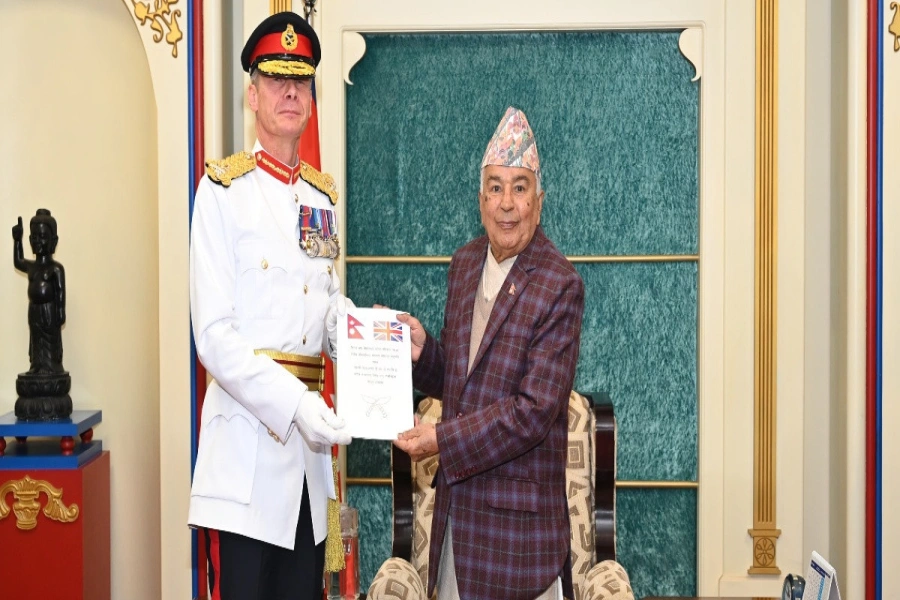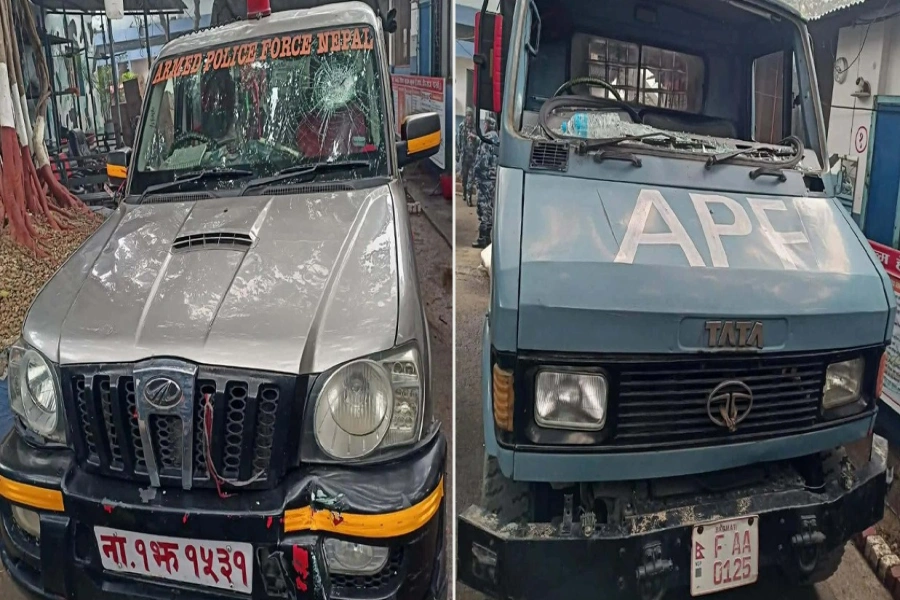Signatories have agreed to complete basic works of the peace process within three months without detailing components of the task. The first draft of the constitution too is to be formalized in three months, but no one is clear about its fundamental principles. The Nepali Army is to be made inclusive and agreements made with Madheshi Front are to be effectively implemented, but the three-month time limit does not apply to this perfunctory statement.
The substantive part of the agreement has been placed fourth on the list but implemented immediately: The CA’s term has been extended by three months. Rumours are rife that unofficial commitments for further extension of another three months too have already been made.
The fifth and final point of the deal is a masterstroke of obfuscation. Couched in the priestly language of fortune-tellers, the intent of the sentence is untranslatable, but what it means in effect is that the prime minister will resign to make way for the formation of a government of national consensus. Does it mean that the PM will resign right away?
The leader of CPN-UML Madhav Kumar Nepal, better known for driving UNMIN out of the country and being the longest serving caretaker premier in the country’s history, thinks that the PM’s resignation may come soon or it may take some time. His party colleague Prakash Jwala, who also happens to be the political advisor of Premier Jhalanath Khanal, is even more noncommittal. He interprets the clause to mean that once ground for formation of national government has been cleared, the PM will resign to make way for installation of successor government.
The trick in the tactic is too transparent to need elaboration: Ground for the formation of national government cannot be cleared unless PM resigns and he will not resign unless the ground for his resignation has been cleared. Considering the catch in clause, Madhav Nepal is correct in his prognosis: PM’s resignation may come soon, or it may take some time, it all depends. But depends on what?
It seems management of arms and armies is going to be the crucial issue of contestations over next few weeks. Former handlers from various intelligence agencies would not let off the heat unless Maoists agreed to completely disengage politics from all vestiges of armed insurgency. Maoists would need to show flexibility and inventiveness to save themselves from the wrath of their scorned sponsors.
BONFIRE OF VANITIES
Maoists began their armed revolt with homemade bharua guns and improvised explosive devices such as sutali, baltin and pressure cooker bombs along with bamboo sticks, khukuri knives, swords and spears. Most of the weaponry stored in the containers of camps housing former combatants were either looted from the security forces or acquired from semi-open arms bazaar across the border in the towns of West Bengal, Bihar and Uttar Pradesh.
There is also a strong view in a section of the official security apparatus that some of the critical military hardware, along with their skilled operators, went back to where they had come from once their mission in the mountains of Nepal was over. The insistence of the Maoists that they would not handover their stockpile of arms without the completion of the peace process is pure vanity: Those antiquated guns are almost useless for the advancement of aims of the revolution. In fact, they may even become counterproductive should Maoists decide to resume armed resurrection.
Foreign forces capable of using endless drones to ‘weed out’ militants cannot be fought with automatic rifles. The next violent conflict would probably invite direct outside intervention whether in the name of UN peacekeeping mission or under the aegis of alarmed neighbours. Choice of next Chinese ambassador to Nepal is pregnant with worries of instability in areas bordering Tibet. Maoist insurgency may have helped achieve many things including a republican order, but the damage it has done to Nepal’s image in the international community is beyond repair. Maoists and the Nepali Army need to accept that this country cannot afford another violent conflict under any pretext.
Before Tom Wolfe, one of the founding fathers of New Journalism movement, made the expression famous with an eponymous novel, the phrase the Bonfire of the Vanities referred to the burning of objects that were deemed implements of sin. What mirrors, cosmetics, fine dresses, paintings, playing cards, musical instruments and ‘immoral’ books did to the spirit of supporters of Dominican priest Girolamo Savonarola in 1497 AD—inflame their passions and provoke them to commit misdeeds—outdated ideologies, unaccounted wealth and weapons of civil war do to the dreamy youths of this century.
The controversy over handing over of Maoist’s arms is pointless; there is a more symbolic method of putting the painful past behind: Take all the weaponry from containers of combatants’ cantonments and the Chhauni Barracks, transport them to Lumbini, and burn them in the full public view with witnesses from UN and other prominent representatives from international community. Financially, it would be huge loss to the exchequer, but the damage they could inflict if kept intact would be enormous. Such a step will save Maoist Supremo from the embarrassment of having to handover weapons, protect the army from the charges of being intransigent on the issue of arms management and give a boost to Nepal’s image as peace-loving nation. Advantages of the move far outweigh its costs, which amounts to few million rupees worth of outdated guns.
SENSE & SENSITIVITIES
Arms management is necessary but not sufficient in itself to lay ground works for democratic peace. Future of combatants that have been interned in temporary camps for a prolonged period, often under abysmal conditions, needs to be decided with extreme care. All of them may not have been frontline fighters, but most of them probably joined Maoists knowing fully well that they could be killed in the skirmishes. Such people are not many in any society; even our famed lahures fight for salaries rather than for convictions. These Maoist combatants may be half-literate, ill-equipped, poorly trained and deficient in techniques of ceremonial drills, but they are some of the bravest of our brave. The country has to devise ways of benefiting from their spirit of sacrifice.
Sensitivities of Madheshis too need to be taken into consideration while detailing the implementation schedule of the five-point outline of political consensus: No peace plan can work by keeping one third of country’s population outside its ambit. Madheshbadi parties are so fractured that there is only so much their buckets can hold; its denial would cause bigger worries in future. Formation of Madheshi units in security forces to make them more inclusive is a long-drawn process; its acceptance in principle would give a positive message to the historically discriminated section of national population.
Despite their political strength, Maoists and Madheshbadis are merely probable recipients. It will take a while before they acquire the political power, which is different from being in the government, to implement their manifesto. Both these players need to accept that leadership of UML would merely delay the completion of peace process. Madhesbadis have to agree that Maoists are rightful claimants of Baluwatar. Maoists must concede that Nepali Congress is a credible alternative for the leadership of the government. Until and unless climate of trust is built between these three forces, any agreement reached will not be worth the paper it has been written on.
The UML has a historic role to play—help Maoists become responsible players in mainstream politics, facilitate the transformation of Nepali Congress into a pragmatic party, cool tempers of Madheshbadis and allay fears of their collaborators in the Permanent Establishment in Kathmandu. These are huge responsibilities even for a political party known for its phenomenal material and human resources. Premier Jhalnath Khanal can channel it all toward peace building by becoming a more effective chairperson of his party. He can begin doing so by resigning from his post with immediate effect. At the very worst, the caretaker status would not last more than three months this time.
Extension of CA’s term is likely to produce some amusing side effects too. The comfortable class will feign surprise and intensify its hatemongering for ‘dirty politics’. Learned commentaries from expatriate Nepali community will enlighten trawlers of the cyberspace. Revolt of the laptop warriors will set the blogosphere on fire. Viciousness of ‘fa-bo’—shorthand for Facebook posts—will become even more stinging. For commoners of all hues, however, it will be business as usual until the next show inside CA premises telecast live in slow motion.
cklal@hotmail.com
‘Vanity Fair’ cover shot by Black photographer for 1st time






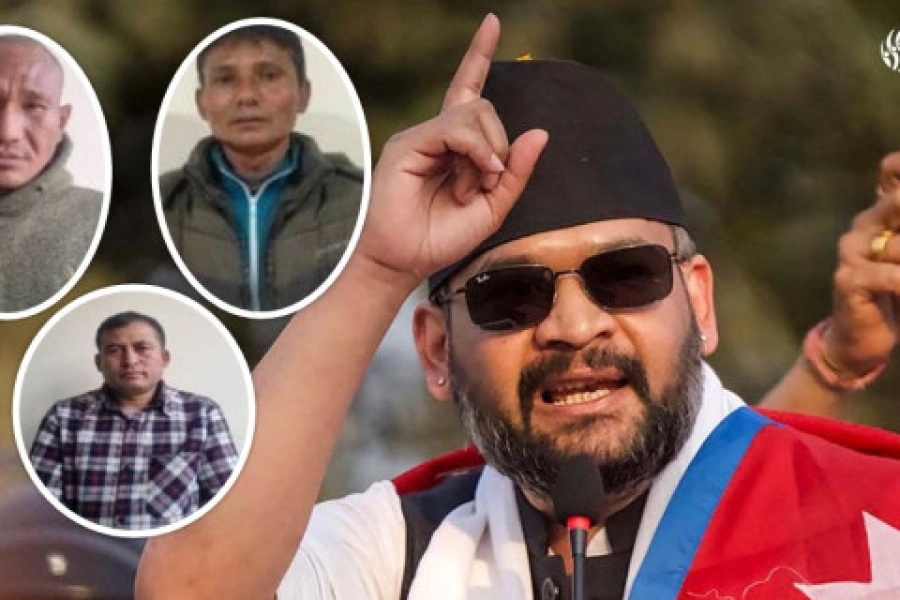
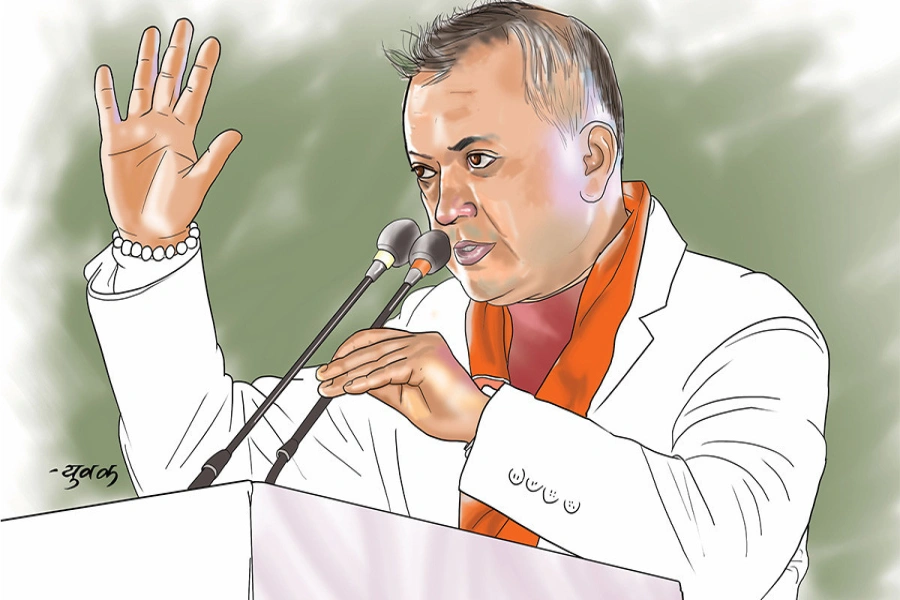
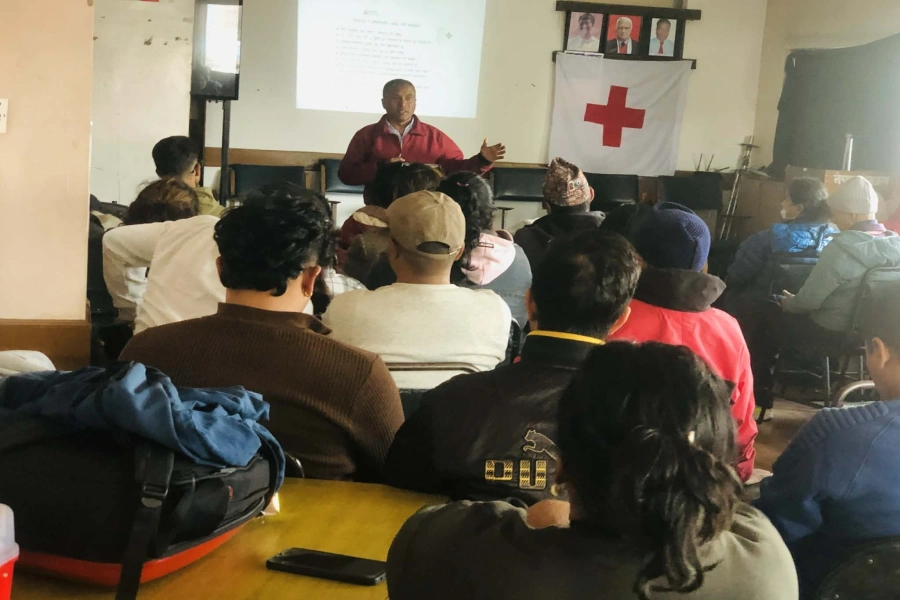






-1770648553.webp)








